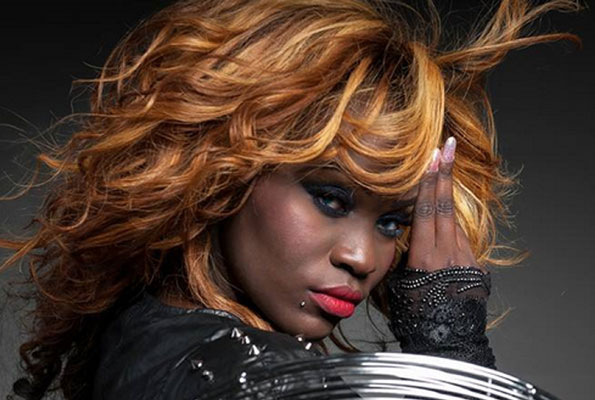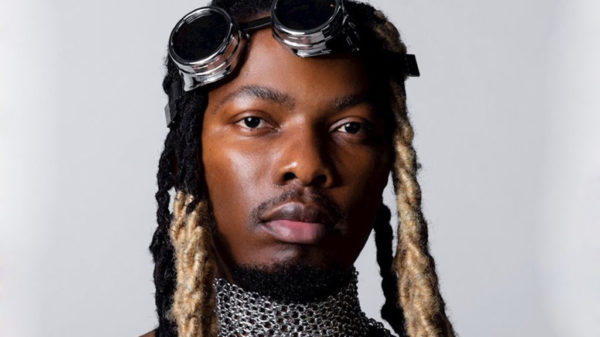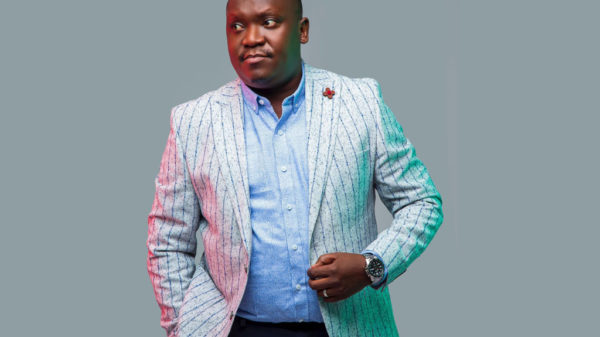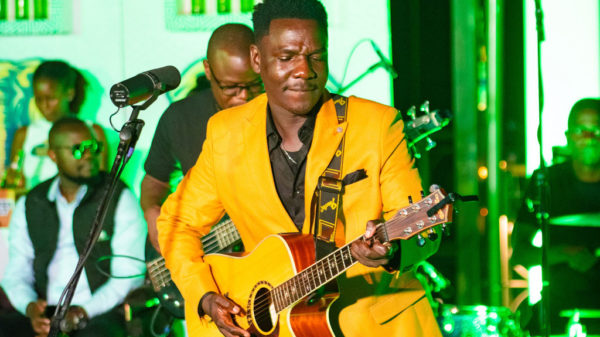DRUG ADDICTION: Just like many ordinary men and women, celebrities too have their fair share of struggles, including substance abuse. Esther Oluka digs into the drug problem eating up our society and compiles some of the notable celebrities who have battled alcohol and drug addictions.
It is no longer a secret that substance abuse is rampant in the entertainment industry, especially among musicians. From time to time, stories surface of artistes struggling with either alcohol or drug abuse. While some of these celebrities continuously live in denial, preferring to keep their addictions under wraps, others have come out admitting to substance abuse and shared personal stories of how they are coping. But why is it that entertainers are vulnerable to drug addiction? It is no longer a secret that substance abuse is rampant in the entertainment industry, especially among musicians. From time to time, stories surface of artistes struggling with either alcohol or drug abuse. While some of these celebrities continuously live in denial, preferring to keep their addictions under wraps, others have come out admitting to substance abuse and shared personal stories of how they are coping. But why is it that entertainers are vulnerable to drug addiction? In a recent post on his Facebook timeline, Douglas Lwanga, the NTV The Beat presenter wrote: “We people in the entertainment industry have seen things happen and stayed quiet about it. So many people including our beloved artistes are falling prey to this (drugs)…”. According to Lwanga, entertainers are often lured into using drugs because of the nature of their work: “These artistes are usually tempted because they work late in the night, a time when evil tends to prevail the most,” Lwanga says. He adds that since artistes always undergo a lot of pressure to make hit songs, they get stressed and some opt to using drugs for different reasons, including calming their nerves. “Some of these artistes want to perform like others who have great vocals and stage presence. So, in order to be like them, they resort to doing drugs to attain self-confidence,” Lwanga adds. The criticism from members of the public, bad publicity from the media, urge to experiment or look cool are among the other reasons artistes are said to turn to drugs. Also, performers that use drugs believe that they cannot work without the drugs; it is like fuel to them, as Albert Louis Elwa, the director of Recovery Uganda, says: “I understand there are all sorts of pressures in this industry to keep up with the fame and staying relevant but it is possible to be successful without necessarily relying on the drugs. You only have to believe in your talent.”
Where do artistes find these drugs? During an interview on NTV’s Mwasuze Mutya with Faridah Nakazibwe, hairstylist Kennedy Zziwa said the suppliers of these drugs are people among us, and often hang around celebs. Zziwa, who recently went clean, says he was introduced to drugs in one of the nightclubs. “The drugs in Uganda are readily available, the quality is good and quite affordable. I used to buy a gramme of cocaine at Shs100,000 compared to the $100 I was paying in China,” Zziwa says.A waitress who preferred to only identify herself as Subra, working at one of the prominent nightclubs in Kampala, says many times she has witnessed drugs exchanging hands within and outside the discothèque. “A couple of times, I have witnessed drugs being tactfully slipped into an artiste’s right hand. And before you know it, they head to the washrooms to chew, sniff or even inject themselves,” she says.  Sometimes, the drugs are handed to the artiste’s entourage. But besides nightclubs, some of these drugs are sold by middlemen linked to drug lords. Blowing things out of proportion Bryan Sabiiti, a radio personality known to many as McKenzie, says substance abuse is an all-round problem not only in the entertainment industry but also penetrating schools, universities and workplaces. “We live in a hypocritical society. We condemn these performers because they are in the public eye and yet there are many people out there, including those holding public offices abusing drugs,” McKenzie says. Sometimes the public is quick to judge some of these artistes because their lives are out there in the open: “When some members of the public see these artistes pulling off dreadlocks, having energetic performances or hanging out with a particular crowd, they assume that they are depending on a particular drug, yet this may not be the case,” McKenzie explains, adding, “In fact I know of only few musicians abusing drugs in this industry.” Rather than throw daggers at those in the entertainment industry, Mckenzie wishes that critics look at the bigger picture by looking at substance abuse at different levels and finding help for everyone affected.
Sometimes, the drugs are handed to the artiste’s entourage. But besides nightclubs, some of these drugs are sold by middlemen linked to drug lords. Blowing things out of proportion Bryan Sabiiti, a radio personality known to many as McKenzie, says substance abuse is an all-round problem not only in the entertainment industry but also penetrating schools, universities and workplaces. “We live in a hypocritical society. We condemn these performers because they are in the public eye and yet there are many people out there, including those holding public offices abusing drugs,” McKenzie says. Sometimes the public is quick to judge some of these artistes because their lives are out there in the open: “When some members of the public see these artistes pulling off dreadlocks, having energetic performances or hanging out with a particular crowd, they assume that they are depending on a particular drug, yet this may not be the case,” McKenzie explains, adding, “In fact I know of only few musicians abusing drugs in this industry.” Rather than throw daggers at those in the entertainment industry, Mckenzie wishes that critics look at the bigger picture by looking at substance abuse at different levels and finding help for everyone affected.
Why is addiction a difficult habit to break? In Zziwa’s words, “The high you get from drugs is good! It is the best feeling but it is only shortlived and never worth it.”“It makes the addicts feel good and forget their worries for stipulated periods of time,” says Joseph Kasirye, a recovering addict who has previously sold drugs to interested parties. The 35-year-old says some of his past clients have been middle men who have sold drugs to artistes: “A middleman would come to me asking for a particular drug and reason that a particular artiste was willing to pay any amount of money,” he says, adding, “I got a lot of money from selling drugs to high profile people.”Kasirye opted out of selling drugs because he was getting addicted to the drugs himself.
The most abused drugs on the market
Although there are different drugs on the market, sometimes abusers have preferences. Some opt for marijuana commonly known as weed because it is cheaper and easily accessible on the market. Others go for the more costly ones such as cocaine and heroin. Five rolled marijuana cigarettes can cost as low as Shs5,000 while a small packet of cocaine can cost upto Shs50,000. Sometimes such expenses force the drug addicts to either borrow or steal money to cater for their addictions.
Celebs that have been associated with drugs
Davis Lukwago a.k.a Dave Dash
Last week, social media was awash with video clips of Davis Lukwago a.k.a Dave Dash, a former TV and radio personality walking and running naked on the road. Dash had reportedly been using drugs, an addiction believed to have cost him previous jobs. Another unclaimed report says the dreadlocked lad became depressed after Wellike Westra, his partner denied him access to their three-year-old son, Zion Davis Lukwago. Currently Dash is receiving treatment at Butabika National Referral Hospital. Kennedy Zziwa, the proprietor of Hair by Zziwa as well as a former drug addict recently paid a visit to Dash at the facility and posted a brief conversation he had with Dash on his Facebook wall. Zziwa said Dash was in shape and blamed the incident on depression after working for many days without getting adequate rest. He vowed never to abuse drugs again.
Jackie Chandiru

A lot has been said about Jackie Chandiru, a former member of all-girl music group, Blu*3. From her past whirlwind romance with lawyer Caleb Alaka to her 2015 marriage to Nol Van Vliet, a Polish national who now wants a divorce. Let’s not also forget the continuous reports making rounds that she is currently recovering from substance abuse. In a July 2016 Sqoop interview, Chandiru refuted claims that she was an addict but was rather using pathedine to ease back and chest pain, and would take the medicine whenever the pain was unbearable. Pathedine is medicine used to moderate severe pain and regular use may result in addiction. In a brief phone interview, Julie Erusa, her manager, said Chandiru’s health was improving and she would only be able to do interviews after rehabilitation.
Kennedy Zziwa aka HairbyZziwa
The 30-year-old celebrity hair stylist is one not afraid to speak about his escapades with alcohol and cocaine. In previous media interviews, Zziwa admits to being addicted to alcohol and cocaine for about six years, having spent about Shs60m on drugs in one year alone. He would drink throughout the day as well as organise binge drinking parties at his house. Zziwa says the addictions helped him fit easily into society by faking smiles and connecting with different people. After realising that his addiction was getting out of control, he sought help from Butabika hospital, where he spent 60 days before coming out in July, 2017. The now-recovering alcohol and drug addict plans on starting a non-profit organisation to sensitise on the dangers of such addictions.
Robert Ssentamu Kyagulanyi a.k.a Bobi Wine

Today, Robert Kyagulanyi a.k.a Bobi Wine is a member of Parliament. However, despite his new legislative role, he cannot run away from his past. Before joining active politics this year, Kyagulanyi was not shy to profess his love for weed. In fact there are some old pictures on different online sites showing him rolling a joint and thereafter smoking it. One of the photographs shows him wearing a cap professing his love for weed. But that is all in the past, after Bobi Wine released a song Dipo Ze Sada, a few years back confessing that he had quit weed. Today, Kyagulanyi is a shadow of his former self after cutting his dreadlocks and as required of any MP, he is always wearing suits. Besides conducting legislature work, running his personal businesses, the 35-year-old is also involved with the police int he fight against drug trafficking.
Radio and Weasel

Moses Ssekibogo a.k.a Radio and Douglas Mayanja a.k.a Weasel have previously battled police cases of alleged illegal possession of drugs in their Neverland Ranch home, allegations they often refute. That aside, Radio in many circles has for long been known as a heavy drinker, whose uncontrollable habit causes him to act erratically. He has been seen on live TV interviews seemingly intoxicated.
Jocelyn Tracey Keko
Unlike many musicians who prefer to hide their personal struggles from the public, Jocelyn Tracey Keko seems not to mind after previously admitting to struggling with drugs and alcohol abuse. The 30-year-old rapper who is known for songs such as Make You Dance, How We Do It, among others struggled with drink and substance abuse during the peak of her music career in 2014. In fact during this time, rumours often circulated that Keko had been seen on the streets not acting her usual self. She blamed her addiction on lack of self-esteem as well as surrounding herself with fake friends. Keko was able to seek treatment from facilities such as Serenity Centre on Entebbe Road. As she continues to recover and revive her music career, Keko is involved in a crusade advocating against substance abuse.































































